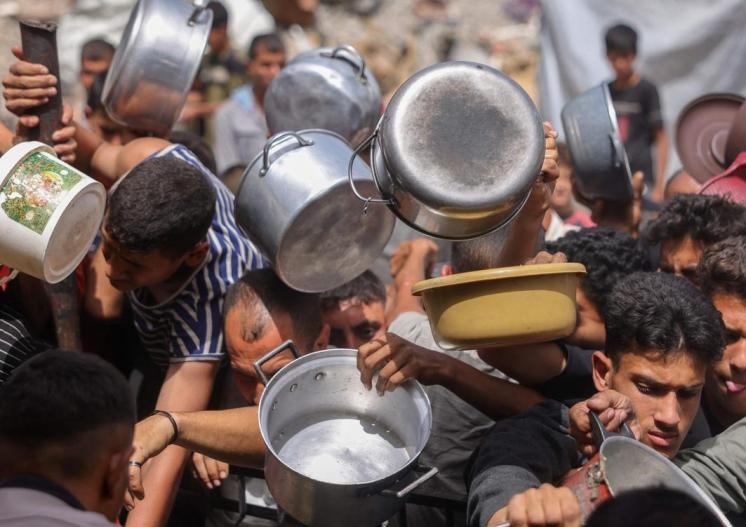
The office of the Prime Minister of Israel said that after facing increasing pressure to lift the total blockade imposed more than two months ago, Israel will allow a "basic quantity" of food to enter the Gaza Strip.
Agence France-Presse reported that the office of the Prime Minister of Israel said on Sunday (May 18) that on the suggestion of the military, "Israel will approve a certain amount of basic food to enter Gaza to ensure that there will be no famine crisis in the area."
The statement pointed out that if famine occurs in Gaza, it may endanger Israel's new round of military operations. The Israeli side also emphasized that it would "take action to prevent Hamas from seizing humanitarian aid". Israel has imposed a blockade since March 2nd, aiming to force Hamas to make concessions. But UN agencies have repeatedly warned that Gaza is facing severe shortages of food, clean drinking water, fuel and medicine.
The Israeli army stated earlier the same day that it has "carried out extensive ground operations in both the north and south of Gaza" and "deployed in key locations".
This intensified offensive was launched last Saturday (the 17th). Israel said that the goal of the operation was to rescue the hostages and defeat Hamas. Meanwhile, the two sides held indirect negotiations in Qatar.
The office of Netanyahu said that negotiators were "doing everything they could to strive for an agreement - whether based on the 'Vitkov Framework' or as part of ending the war". Vitkov is the US special envoy for the Middle East and participates in relevant consultations.
The Israeli side said that the content of the agreement would include "releasing all hostages, exiling Hamas militants, and disarming the Gaza Strip".
Since Israel resumed its offensive in March and the two-month ceasefire agreement broke down, the negotiations brokered by Qatar, Egypt and the United States have yet to reach a breakthrough.
Netanyahu insisted on ending the war only after "completely defeating Hamas", while Hamas refused to disarm.
An informed Hamas negotiator said the organization is willing to "release all Israeli hostages at one time on the premise of reaching a comprehensive and permanent ceasefire agreement". However, the Israeli side "hopes that Hamas will release the hostages in one or two batches in exchange for a temporary ceasefire".
Air raid sirens sounded in southern Israel on Sunday afternoon. The Israeli army said that one of the two rockets launched from Gaza was intercepted. Subsequently, the Israeli army issued an evacuation order for parts of Gaza and warned that "fierce strikes would be launched on all rocket launch sites".
Gaza's civil defense spokesperson Basal said that as of Sunday afternoon, at least 50 people had been killed in the continuous air strikes by the Israeli army on that day. 22 people were killed and at least 100 others were injured in an air strike in a tent area for displaced persons in the Al-Mawaasi area in southern Gaza. The Israeli military statement said that in a round of "initial strikes" over the past week, the military has hit "more than 670 Hamas terrorist targets in the Gaza Strip".

U.S. Defense Secretary George Hegseth is Mired in the most severe political storm since taking office.
U.S. Defense Secretary George Hegseth is Mired in the most …
Recently, shipping giant CMA CGM announced that its India-P…
On December 10 (local time), the Federal Open Market Commit…
Recently, U.S. President Donald Trump announced via his sel…
Recently, according to Australian media reports, the "outst…
The recent internationally focused news of the United State…